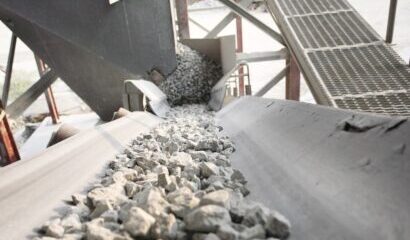Moving on: China’s IPO hopefuls shift to Hong Kong to avoid A-share delays
- 55 A-share IPOs were ditched in January-February, 18.3% of 2023 total
- Valuation challenges await companies for Hong Kong listings
So far in 2024, rarely a week has passed without a handful of Chinese companies announcing terminations or withdrawals of their domestic initial public offerings.
IPO cancellations are nothing unusual, especially in a market like China where equities have been hard hit by years of economic and geopolitical woes. But when so many companies abort IPOs – a daily routine in some weeks – it might suggest they no longer view the A-share market as a welcoming platform for their funding needs as they mature.
“The China Securities and Regulations Commission (CSRC) prefers A-share capital raised to fund strategically important tech sectors over consumer brands – business pertaining to food, beverage, apparel, hotel, and travel,” a lawyer at Haiwen Partners said.
Barring a few that might consider the US, most of these consumer companies will likely end up getting listed in Hong Kong.
Starting in the second half of 2023, several Chinese boba-tea brands, including Sichuan Baicha Baidao Industrial, Guming Holdings, MIXUE Group, and Auntea Jenny (Shanghai) Industrial, have filed for Hong Kong IPOs, mostly in late December or early January.
Jewellery brands, Mokingran Jewellery Group and Laopu Gold, fast-food chain Xiaocaiyuan International and fashion company Belle Fashion are also flocking to the Hong Kong exchange.
Dr. Neil Wang, global partner and Greater China chairman at Frost & Sullivan, said that in Hong Kong consumer companies are treated neutrally by the exchange.
Beyond consumer players, software is another Hong Kong-bound sector, Wang added.
Software-as-a-service companies including Tianju Dihe (Suzhou) Technology, EDA Group, Baiwang, Shanghai Voicecomm Information Technology, Baishan Cloud Holdings, and Zhubajie have also filed for Hong Kong listings.
A reluctant choice
However, many of these IPOs might not happen until the second half, considering that the Hang Seng Index remains among the region’s laggards, and given elevated global rates.
The Hang Seng Index’s underperformance has limited the asking valuations for companies, investors have said.
Evidence of challenges for any company to complete a Hong Kong listing these days are many. For one, none of the very few Hong Kong IPOs priced, so far, this year has raised more than USD 100m.
Let’s not forget that the task of presenting a differentiated business model and innovative products or services will be all the more important, as so many companies from the same sector woo investors around the same time, Wang added.
The recent rebound in the Hang Seng Index must also be sustainable enough to lay solid grounds for corporates to print bigger IPOs. And this will, again, require founders to patiently wait for such windows to open.
But consumer and software firms are left with few if any better options.

Data: Dealogic
Patience is a virtue
A registration-based scheme effective in early 2023, was meant to fast-track the A-share listing process. But in 2023, when the CSI 300 Index shed 22.6%, following 2022’s 15% decline, stabilizing domestic equities was more urgent for the regulators than speeding up IPO reviews.
To begin with, getting listed has always been a milestone that Chinese companies take seriously. The country constantly has hundreds of companies eager to go public. But the regulator tightened IPO standards in August 2023 – a measure it deemed necessary to support share prices – leaving piles of filings gathering dust and further extending the listing wait time.
On average, a domestic IPO in China took 432 days from filing to listing last year. And that has in fact been a norm for many years, including one when it broke 500 days, according to Dealogic ECM.
Even after so many withdrawals, nearly 650 companies were still on the waiting list for an A-share IPO as of early March.
The prolonged wait is surely a test of patience for any business owner.
For the consumer sector, where businesses tend to dance wildly with economic shocks, company managements have come under pressure from shareholders looking to exit, making the prospect of waiting longer pointless. This is especially the case given that the regulator has in one way or another discouraged them from listing at home.
At today’s snail-pace, a lawyer at King & Wood Mallesons estimated only about 100 companies’ stocks will be added to Chinese exchanges this year. In 2023, 318 companies successfully listed in China, versus 437 the previous year, according to a KPMG report.
Where else?
Some Chinese companies are regaining interest in US stock exchanges, while others have found the Beijing Stock Exchange as a potential listing venue, noted a lawyer at AllBright Law and the KWM lawyer.
Queries about US IPOs have increased lately, the KWM lawyer said. Some companies are looking to take advantage of a possible Federal Reserve rate cut in 2024, the AllBright lawyer said.
But a US IPO, again, is not for everyone. SHEIN, a Chinese ultra-fast-fashion brand headquartered in Singapore, has hit a full set of regulatory challenges from China and the US. (For more on SHEIN, please check out here, here and here.)
The Beijing Stock Exchange, founded in 2021 for small and medium enterprises, has gained popularity among IPO hopefuls after the CSRC published 19 initiatives last September, including one specifically designed to expedite the listing process, the KWM lawyer said.
Yet, as of mid-March, the entire package remains on paper, while it was supposed to go effective in late 2023, the lawyer added.
The Beijing exchange boasts friendlier listing requirements and a shorter wait time compared with its two bigger sister exchanges at home, the AllBright lawyer said.
As well-intended or competitive as the Beijing exchange aims to be, at the end of the day it is still bound by lagging equity prices at home compared to regional markets.
Until share prices return to levels that the CSRC considers normal, none of the exchanges will expect an IPO resumption.










